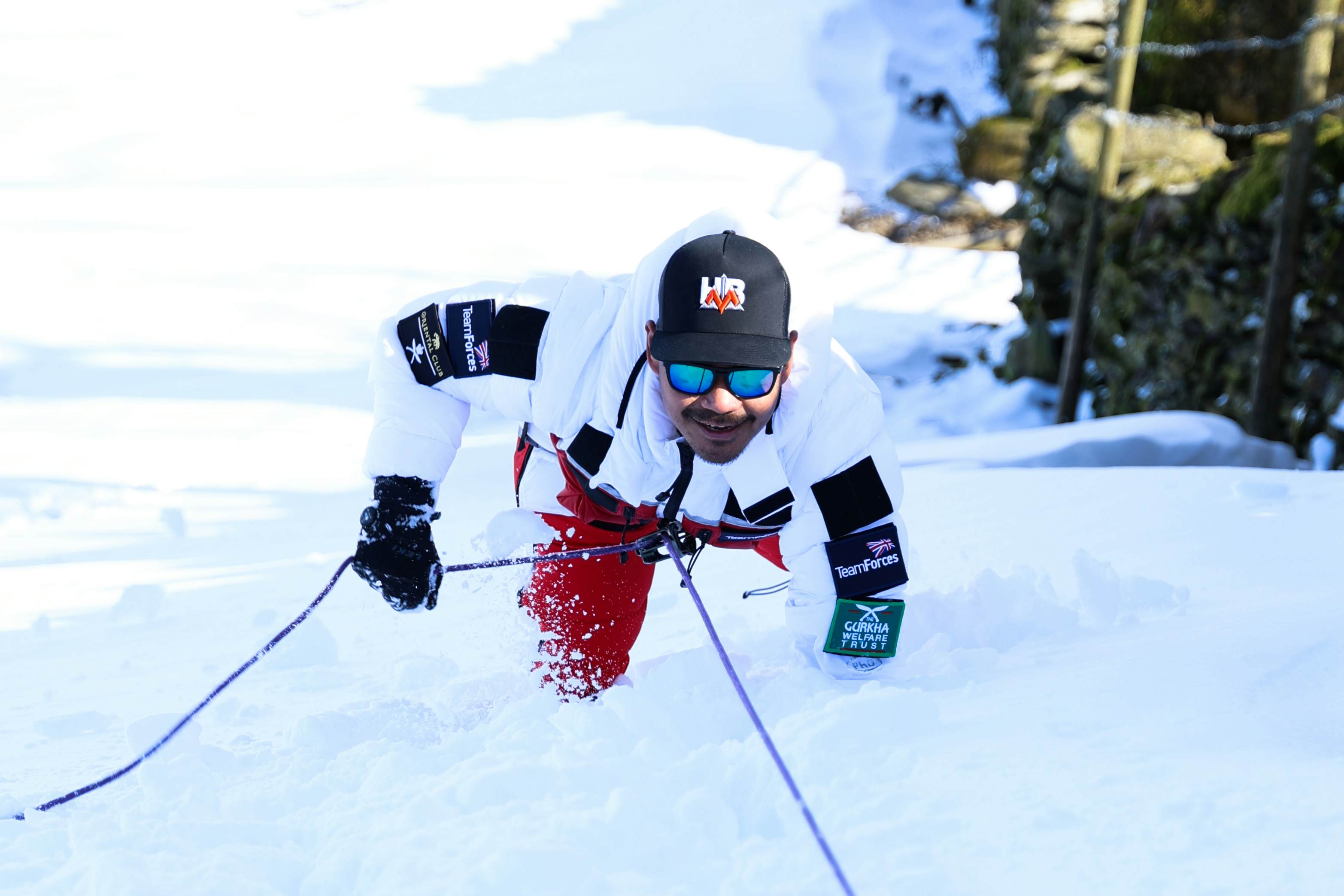SunGod Ambassador Hari Budha Magar was born to climb mountains.
Growing up in Nepal, he looked out at the towering Himalayas every day, and his passion for climbing was sparked by a childhood surrounded by the world’s highest peaks.
But after 15 years serving in the British Army’s legendary Gurkha regiment, Hari’s life was turned upside down when he experienced life-changing injuries and became a double above-the-knee amputee.
For many, that would mean the end of a climbing career, but not for Hari. Adaptation became Hari’s mantra - and the belief that with a flexible mindset, nothing is impossible. Discover Hari's story as he tackles the challenge of a lifetime: becoming the world's first double above-the-knee amputee to summit Mount Everest.
From Active Gurkha to Double Amputee
I was born in Nepal, looking out at the mountains every day. In my country, people are very proud of Mount Everest; so I grew up listening to stories of the early moutaineers, like Tenzing Norgay, and learning about the mountain itself. I'd always dreamt of climbing it, ever since I was a kid. My plan had always been to climb Everest after I finished serving in the Gurkhas, but that plan was turned on its head when I lost my legs in active service.
After the injury, which led to me becoming a double above-the-knee amputee, I asked myself, "how am I going to climb Mount Everest?". Without my legs, it felt like my life was over. I thought I’d never climb again. But I slowly started to change my outlook on life, as I realised that sport and adventure were possible, they just required adaptations. In fact, my whole life became one of adaptation. With that realisation, suddenly nothing was impossible; I just learnt that I have to do things slightly differently.
"Over and over, I questioned myself. And the answer was always yes."
My journey has been filled with challenges. Finding the right prosthetic legs has been really tough, for starters. I wasn’t able to find any prosthetics for climbing, so eventually I made contact with a friend in America, who was a keen climber and amputee, and he sent me a pair of his adapted crampons. We paired them with a heated socket to stop me from getting frostbite, and I was able to start climbing.
Mentally, it’s been hard. I doubted myself lots of times. Many times, I asked myself, am I doing the right thing? Over and over, I questioned myself. And the answer was always yes. So I just kept climbing.
But it wasn’t just my own doubt that I was battling with; it was other peoples' too. At first, people just didn’t believe an amputee like me could climb, so fundraising was incredibly hard. But I persevered, and once I’d climbed a few peaks in training the momentum started to build. After summiting Mera Peak in Nepal, where I became the first ever double above-the-knee amputee to summit over 6000m, I burst into tears as I left all my doubts behind - I'd finally proved I could do it.
"Anything can happen...but we'll solve the problems one by one."
The ultimate challenge was the climb itself. I was nervous, obviously, because there were so many elements outside of my control. Anything can happen on the mountain; from earthquakes, to avalanches, to tough weather conditions. And I knew the climb itself would take me 3 times longer than able-bodied climbers, so the distance on summit day in particular was going to be incredibly tough.
There would be so many challenges, but along with my team, I knew we'd just solve them one by one, and I was confident we'd make it through. I wanted to make all my sponsors, supporters, family and friends - everyone who was part of this incredible journey - proud.
I'm proud to say that on 19th May, we accomplished the challenge, and I made history becoming the world's first double above-knee amputee to conquer Everest.
"This is my second life, and I want to make it as meaningful as possible."
And finally, a word of advice to other people with disabilities or injuries. Simply close your eyes, get out there and do something that you love. For me, this is my second life, and I want to make it as meaningful as possible. It’s not just about surviving, it’s about making a difference in other people’s lives.
As I struggled through every step on Everest, I hoped I was inspiring people to climb their own mountains. Whatever mountain that might be. That’s what really motivates me. All the people who have supported and inspired me over the last 5 years were my motivation to reach the summit of Everest; and I hope that I can be that motivation for other people, whatever form their own mountains take. Life is all about adaptation, and nothing is impossible.
Hari aims to raise £884,900 (the height of Everest plus two zeros!) for 5 incredible charities that helped him through his rehabilitation. For more information and to donate, follow @hari_budha_magar on Instagram.
